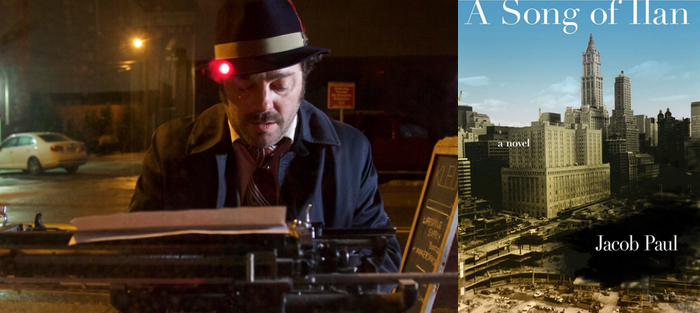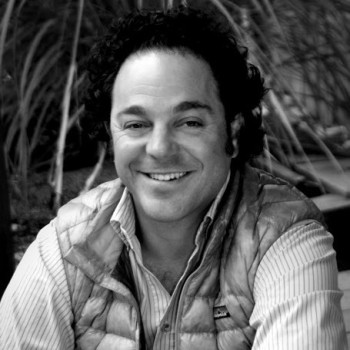I was first introduced to Jacob Paul’s work by Erika Dreifus, whose review of his debut novel, Sarah/Sara, appeared here on Fiction Writers Review in July of 2010. The introduction to that review begins:
Jacob Paul’s debut, Sarah/Sara, is not a joyful read, but it is a deeply moving one. The novel unfolds as the journal of Sarah Frankel, an American-born Jew who, shortly after finishing college, moved to Israel, where she took the Hebrew version of her name (“Sara,” pronounced Sah-rah) and became far more ritually observant than she was raised to be. After her visiting parents are killed in a suicide bombing in the café below her Jerusalem apartment, Sara embarks on a six-week, solo kayaking trip through the Arctic. Throughout the beautiful yet dangerous trek, Sarah’s thoughts turn not only to her past—memories—but also to an imagined future, one that challenges her faith.
The following year, we published Aaron J. Cance’s interview with Jacob, which also focused on Sarah/Sara. In both features, I was struck by the way in which this book and its author seemed preoccupied with the intersections of faith and healing, endurance and belief, and how one makes (or, tries to make) meaning from the unknowable and inexplicable.
In 2011, I met Jacob in person at AWP. And in the following years we’ve kept up a conversation of sorts, working together on Jacob’s critical and essayistic work he’s published on this site, and continuing our discussions from one conference to the next. Throughout the process, I’ve learned a lot about philosophy, about critical theory, and about the deeply challenging and problematic work of tackling a subject like the holocaust in fiction. (Read Jacob’s marvelous essay “Slouching Past Totality; Or, What a Post-Postmodern Holocaust Novel Might Look Like” for a glimpse.) I’ve also come to greatly admire Jacob’s empathy for his subjects, and the joy he manages to bring to his exploration of their worlds, despite the often fraught terrain he is covering.
So it was a pleasure to finally sit down with him to talk about his work, both Sarah/Sara and his newest novel, A Song of Ilan (Jaded Ibis Press, 2015), which revolves in part around the chain of events set in motion by the guilt the title character feels after shooting a female suicide bomber in Tel Aviv during his mandatory military service in Israel. Returning to the U.S. following the incident, American-born Ilan finds himself destabilized by the occurrence, and the novel seeks to unravel his unraveling. It does so in a narrative that is equally destabilized, offering the reader alternative ways in to the story and to the pathos at the heart of this deeply felt book.
In addition to producing these two novels, Jacob’s collaborative work based in the Social Practices in Art movement has led to several projects and books, including, Home for an Hour (MPMP, 2014). He holds an MFA from the Vermont College of Fine Arts and a PhD from the University of Utah. He currently teaches creative writing at High Point University in North Carolina. For more on Jacob Paul and his work, visit his author site.
Interview:
Jeremiah Chamberlin: Let’s begin at the beginning. Were you someone for whom writing was always an important part of your life, or did you come to it later?
Jacob Paul: Certainly by college it was an important part of my life. I read incessantly as a young person, and then I guess I always believed that when a person grew up, they were supposed to become a scientist, because my dad was a scientist. My last two years of high school I was at this yeshiva, an ultra-Orthodox Jewish boarding school, the Talmudical Institute of Upstate New York, where they had relatively few secular offerings, so they’d agreed to send me to community college for one class per semester to expand my academic regimen. I imagined I would take calculus my first semester, but all the calc classes at Monroe County Community College were full. So I took a creative writing class instead. And I liked it.
Afterwards, I went to college at SUNY – Buffalo. I started as a physics and math major, but after one semester I realized, “You don’t get to read books doing this, let alone write them.” So my second semester I took a creative writing class with Raymond Federman, who was one of the founders of the Fiction Collective [a publishing house dedicated to experimental fiction], and an intro to lit course. From that point it became my intent to write.
Was there a particular type of writing that appealed to you in those early days, or particular authors who resonated with you?
Federman really pushed us to be very experimental, sort of in the tradition of the nouveau roman mixed with a little more hippie, beatnick, language-poet play. So that pushed me into writing in stranger ways, in seeking that kind of text.
Then I started reading a bunch of Italian writers—Italo Calvino had probably led me in through If On a Winter’s Night a Traveler. And I quickly got to Elio Vittorini. He wrote a number of books, his most famous of which is Conversations in Sicily, which apparently went through the censors six or seven times, and became a more and more bizarre allegory with each one, until he could finally get it published. He was Italo Calvino’s teacher, ultimately. But after World War II, he quit writing, because he said there was no purpose in doing so—because there were no more fascists to oppose, everything was fine. [Laughter.]
Vittorini had a collection of two short novels [Erica and La Garibaldina] called The Dark and the Light. The first is the story of Erica, who is a fourteen or fifteen-year-old girl. She and her family live in a building that’s part of a set of buildings that form a courtyard. And this courtyard becomes the central space of the narrative. First, her father leaves to go work on a railroad to try to get some money because they’re starving and she’s got several younger siblings. Then her mother leaves to follow her father. Then the neighbors begin at once sort of offering her charity and help, but also stealing from her.
When she realizes the full extent of what’s happening, she begins to reject the notion of taking aid from them. And as this bizarrely heroic act, she begins sitting in her window and essentially taking clients as a prostitute. In the final scene, she walks into the supermarket to buy food and the book describes the way she’s caught some infection from one of her patrons, and so she’s walking badly from this, and she slams the money on the counter to purchase this food in front of all of her neighbors. It’s this tremendous triumph, this food purchase. The way that Vittorini’s prose works to accomplish that…I thought, “I want to do that in that kind of way.”
How about some of your own early story attempts; what were you most interested in?
I was writing stuff that would probably go well with a giant jug of Carlo Rossi in a garret. [Laughter.]
But then I decided I wanted to write a novel. And I decided I would take an independent study to do that during my sophomore year. I just looked at the course catalog, and Leslie Fiedler was listed as creative writing faculty. I had no idea who he was, so I just went to his office during his listed office hours to see if he would mentor me.
The English department was in this building called Clemons that had numerous stories. It was sort of a tower. So I walked five or six flights up this stairwell, and as I got closer to his office, I started to smell cigar smoke. I think he was the last person allowed to smoke cigars in a public building in New York state. He was the endowed Samuel Clemens chair and had this enormous office with an assistant who sat in the office and then you kind of went around threee corners to where his desk was positioned, completely out of sight, where he sat with his cigar and his trembling hands and his giant beard. I don’t think an undergrad had come to him in probably twenty years, let alone some foolish kid in too many flannels with some kind of grunge-style hair. I said something like, “I would like to write a novel now.” And he either thought this was ridiculous or he took pity on me and said, “Ok, then.”
I worked with him for a year and a half. I would bring him pages at our meetings and then he’d read them and tell me to go read some thing, or he’d tell me that “the real writing is re-writing.” But he kept me writing, which I think was really important at that stage.
In the year or two after leaving undergraduate, I stayed in correspondence with Leslie, and I remember I wrote two stories that I think were the beginning of getting toward feeling like something I would actually write. One of them was this story told in fragmented sections, parts of which were vaguely autobiographical, about a kid who goes salmon fishing outside Portland on the Sandy River, and who ends up getting taken home for a very innocuous meal—he’s kind of bullied into it beause he doesn’t know how to escape—by this older Latvian man, who shows him his basement where he makes his own fishing weights. And the kid’s having this echo back to…like, “Is this guy going to burn me?” You know, Holocaust style or something. I was entranced with trying to describe the way the river would flow and the sounds it would make as the reflection back into that.
The next story I wrote, which most presaged what would become interesting to me to write about as I got older, was about this kid who is in the Israeli army with a friend. Their second day in the army, they somehow get stuck in the West Bank, and they’re lost during some kind of uprising. They get completely confused and the place is on fire and they don’t know where they’re going—it’s this set of atmospherics, which I was really intrigued by reading Vittorini. Eventually they convince themselves that what God wants them to do is to sacrifice a child, and that will get them out of this mess. I forget why they decide that that’s what they need to do, but they do, and it works. And the problem is that it works. The sacrifice is successful. I remember sending that story to Leslie, sort of laughing. He wrote back, “Finally you’re writing because you have something to say instead of because you just would like to be a writer.” [Laughter.] I think that was the beginning of trying to get to some place.
Certainly some of the preoccupations and philosophical ideas you’re describing here—as well as the stylistic interests—are present in both your novels. But perhaps we can start with your first book, Sarah/Sara. What was the germ for that novel?
I was interested in how I could compare the dangers of the wilderness with the dangers of a city and the potential for respite in either. Then I realized that I was going to write about a character who had become religious, because I was intrigued by that and most of my stuff that dealt with religion came from this kind of angry boy standpoint of being pissed at God and leaving faith. So I wanted to see what the other end to that would be.
I started writing that book two years after 9-11, and I was really in this space of needing to write about that in some fashion or other, but I didn’t want to write directly about it. So I inserted that into the narrator’s father’s past and gave her another terrorist attack. Those things all combined into her taking this trip on behalf of her father. She can’t actually take the place of her father—that’s an impossible act—but in an attempt to do so it forces her to encounter what it would have meant for him to take the trip, and also forces her to encounter the guilt of—whether that guilt is justified or not—having, in her mind, been a cause for her parents’ demise. So that puts her, too, in this spot where for her the only way to make sense of this encounter would be to determine that this is part of a plan that God has for her and for her parents and for the world, and that this actually fits into some sort of order and there is a redemption space—and that that redemption exists in a future that she’s yet to achieve.
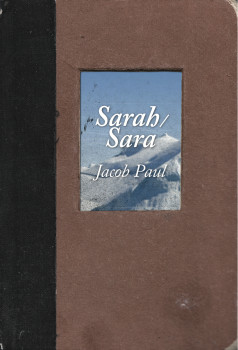 In part, I think, her writing in the future tense in her diary is then an attempt to get to that future more quickly, to believe in that future. It’s at once an act of faith and then a rejection of those principals of faith, which is to say she needs proof by doing it instead of having faith that it will happen. So it’s…it is kind of that same paradoxical space and if, in fact, in her set up there is a God who’s ordering everything, then it’s also a God who’s decided she’s going to be wounded in a terrorist attack and her parents are going to die in it, and then is going to make her wracked with PTSD trying to contend with life. So these avenues work against each another.
In part, I think, her writing in the future tense in her diary is then an attempt to get to that future more quickly, to believe in that future. It’s at once an act of faith and then a rejection of those principals of faith, which is to say she needs proof by doing it instead of having faith that it will happen. So it’s…it is kind of that same paradoxical space and if, in fact, in her set up there is a God who’s ordering everything, then it’s also a God who’s decided she’s going to be wounded in a terrorist attack and her parents are going to die in it, and then is going to make her wracked with PTSD trying to contend with life. So these avenues work against each another.
Right now, I’m halfway through Georgio Agamben’s Remnants of Auschwitz: the Witness in the Archive. It’s kind of about testimony. He’s sort of building off Levinas and he’s talking about how the Holocaust is an impossible event to witness. To be a witness, you have to be dead. So what does it mean? And if you’ve survived, you’re inherently…you’re something other than a witness to its acual thing. But there’s the necessity of testimony. So any attempt to speak it necessarily exists inside of a kind of lacuna, and a lacuna that’s inherently guilty.
In the Agamben book, he’s also talking about Bettelheim discussion of the Muselmann, who are the people in the camps who are kind of at the final stages of living, so they’re no longer responsive to stimuli but they’re walking around and close to death. Bettelheim makes the claim that Hoff, who is the commandant of Auschwitz, has also achieved this same state, even though he’s much better fed than them, because in order to enact what happens at Auschwitz, he has to sacrifice all that things that would otherwise make him human. So from the perspective of ethics, he’s already a Muselmann, too. That notion to being already comdemned to no longer being human in advance of the achieve of that is the kind of space Sara is trying to extricate herself from. The system she set up only provides those kinds of answers, no matter which way she chooses to interpret it. So the objective she has is to try to escape that. And, of course, she’s literally rowing across the arctic, which is a kind of escape, I suppose, too. Physically.
I love the formal quality of this book, particularly the use of the future tense in her journals as a conceit. Not only in terms of the way in which it attempts to reach that redemptive place sooner, as you’re describing—and which I hadn’t quite thought of before—but also the way in which the various “times” of the book become co-mingled, in a sense. The “future” narrative that Sarah is chronicling in her journal becomes as real as the “experienced” reality, it seems. And the membrane between that imagined future and the lived reality becomes so thin and porous that they almost begin to have consequence on one another.
It was an experiment to see what it would be like to use the future tense, and I was really excited to realize that that would give me the opportunity for a second geography, setting it somewhere other than with a woman in the arctic. Then I realized that it would not conform to her desires, necessarily, even though she was writing it—which continues to feel authentic as a process of writing for me, personally—and then also that it wouldn’t even stay contained to itself, that it would begin to demand primacy between the two narratives, that the two narratives would conflate with each another, they would influence each another, they wouldn’t be able to be kept separate.
It’s not saying much of anything from the standpoint of where we’ve begun to theorize narrative and story and language and signification over the last century that we construct stories to order the universe, and I think fiction is a philosophic or poetic form—its objectives are to create models for ordering what is otherwise disordered and chaotic, or seemingly chaotic. It allows us to make a sense where there isn’t necessarily a sense. So the mere invocation of a narrative is to create a new layer of meaning making that’s operative; it’s “real,” whether or not it’s real. And it’s a novel so none of it is real. [Laughter.] But once she’s writing a future tense, a future tense has as much sway as anything else, if this is actually embedded with the notion of the attempt to create meaning perspectively.
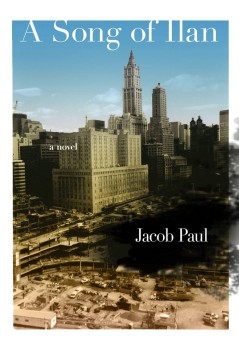 I think in A Song of Ilan, having the three sections have a “slippage” between them, in those terms, is an attempt to perform—on my part—just to see what that looks like. If fiction is an ordering principal, what does it look like if the fiction we read and write doesn’t actually ontologically align? Not because of a plot hole, in the kind of critique we’d have of a mystery novel, but because there’s more than one ordering principal. And maybe based in there somewhere, too, for Ilan, at least, is the notion that a failure to act is a kind of escape even if that escape is fatal. If he doesn’t shoot this woman [a terrorist in a café] and he just lets her blow herself up in the past, then he wouldn’t have to contend with anything anymore. He would have simply ascended into the defined categories as opposed to being in this marginal zone between not being able to act in any particular way or knowing how to act or how to resolve internal crisis.
I think in A Song of Ilan, having the three sections have a “slippage” between them, in those terms, is an attempt to perform—on my part—just to see what that looks like. If fiction is an ordering principal, what does it look like if the fiction we read and write doesn’t actually ontologically align? Not because of a plot hole, in the kind of critique we’d have of a mystery novel, but because there’s more than one ordering principal. And maybe based in there somewhere, too, for Ilan, at least, is the notion that a failure to act is a kind of escape even if that escape is fatal. If he doesn’t shoot this woman [a terrorist in a café] and he just lets her blow herself up in the past, then he wouldn’t have to contend with anything anymore. He would have simply ascended into the defined categories as opposed to being in this marginal zone between not being able to act in any particular way or knowing how to act or how to resolve internal crisis.
In the same way you’re describing this layering of meaning that is created with the use of different tenses in Sarah/Sara, I was intrigued by the way in which theories of translation are similarly described in the A Song of Ilan. Specifically, how Ilan describes the complexity of the translation of the psalms wherein all the various translations might exist simultaneously—another kind of layering. Can you talk a bit more about this idea?
Before I go on to the vector of that mode of translation, or how that came to be there, what I’d say is I think that that notion of the multiple readings existing simultaneously is a structural gambit of the book itself, and it’s the destabilizing opportunity for anyone whose relationship to the divine, or to spirituality, is through texts that are available to multiple readings—whether those readings are translations or not. Every translation is a new product, it’s an interpretation. That gets more and more true when you get into verse, first of all, and then into texts that are several thousands of years old, and then you throw on top of that that they’re religious texts that people treat as sacred and want to do different things with. You know, two seconds of googling will find us five different translations of Psalm 90 that all look pretty different from each another.
But within the specific problem of the Hebrew translation, in Hebrew the Psalms are doing two things poetically that are very challenging to carry over into probably any language, but English certainly amongst those. One is that because Hebrew uses these three-letter roots for every word, and then adds declensions and additional letters to make it different kinds of things, any word carries this echo of all these other words, and with that echo is often carried—and this is the second part—allusions to other Biblical texts. So there’s this constant allusive work happening.
In Psalm 150, which is the last of the Psalms, the language keeps echoing the language of the Shema, which is an important prayer in the book. So Psalm 150 is at once heralding the Messiah and it’s also making claim to the prayer that announces that God is God without having to evoke it. So those kinds of plays—the allusions and the puns, I guess—are the two things that really get lost in the translation to English. And I think there’s a tonal thing in a lot of the psalms. Psalm 90, which is the most in my head because I did so much work with it, especially with this last revision, is constantly asking God to be God. You know, it’s pissed. The speaker needs to remind God that the speaker is His faithful servant. That he’s supposed to be rescued. This is a deep problem. And the English translations tend to not address that because it’s one thing for it to be in the original text, but it’s another thing to highlight it in a translation.
So I wanted to kind of get that, and then I realized that I couldn’t do that, and then I realized that the slippage between the different kinds of translations and having all of them happen at once was really what would be so devasting to Ilan—to not be able to choose a determinant path but to be bound, instead, by many conflicting voices, all of them equally valid. And not have resolution within them.
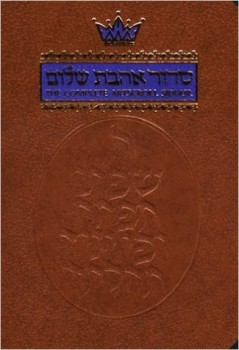 You know, when I was revising the translations I was curious to see how my Art Scroll siddur [prayer book], which is an Orthodox Jewish publishing house, would translate Song of Solomon, just to get one more translatory take. And they write that because of the nature of the text it would be too easy for casual readers to mistake it for something other than what it’s actually intended to be, so rather than translate it, they’ll offer a running explanation of the allegory to God’s love for his people and his Sabbath. [Laughter.] Really? You’re afraid to say what the text is that is mandatory to read aloud in prayer? On a the simplest level. “Your teeth are as white as yews.” Can’t do that. No way. Way too much. [Laughter.]
You know, when I was revising the translations I was curious to see how my Art Scroll siddur [prayer book], which is an Orthodox Jewish publishing house, would translate Song of Solomon, just to get one more translatory take. And they write that because of the nature of the text it would be too easy for casual readers to mistake it for something other than what it’s actually intended to be, so rather than translate it, they’ll offer a running explanation of the allegory to God’s love for his people and his Sabbath. [Laughter.] Really? You’re afraid to say what the text is that is mandatory to read aloud in prayer? On a the simplest level. “Your teeth are as white as yews.” Can’t do that. No way. Way too much. [Laughter.]
It also gives the language a kind of three-dimensionalness. If you look at a row of things head on—say, if you line up a hundred bowling pins and look at them at the right angle—they can look like just one bowling pin. Because they all mask the ones behind them. But if you shift just two degrees to the left, or stand up a little bit, you suddenly see this whole lineage, this whole line of objects, standing behind the one you were looking at square on. So I think it’s a fascinating way to give that three-dimensional quality to that language. Because we often think the goal of translation is to carry over the language in all its subtleties and inferences and idiom, and all the things you were just talking about—and the musicality of the language, and the physical experience of reading—and to then render all of that as perfectly as possible in another language, which implies that there would be a singular “best” version somehow. Yet if you imagine all these options there co-existing…I just thought this was a fascinating way to approach the conundrum.
Often when we start thinking about translation, we forget how we think about texts in a language that we can read. Since Barthes’ S/Z, the notion that divining a clear and linear and monolithic intent from a text is an absurd task anyway. What you really can tell is all the connotative suggestions, the universe of the things coming out of those seams he identifies, which are themselves translatable to other people, but then with all the brand new nebulae of associations based inside the subject who encounters it. So the original text in the original language has all of those opportunities for the multiple reading, as well.
But I think what’s beautiful about translation is that it forces us to contend with that truth: that we are selecting one of many options. Or, that we can potentially see many options at once. Because, as you say, we’re moving to the side, we’re looking at it through an imperfect lens, or a lens that makes visible the imperfection of looking.
And I think we have this binary choice, in some ways: we can either observe the nebula or act upon the language; we don’t get to do both. In a simple dumb example, if I start thinking about all the connotations of the word “fire” when you yell it, I’m not going to escape the fire. [Laughter.] If I just flee the building, I’ll be much better off. But that’s kind of our work, that seeing of all of that.
And maybe one of the things that fascinates me about using a biblical text as one of these UR texts is that there is the conceit that, you know, God does have a monolithic meaning, right? As soon as you start to read it as literature and start to destabilize that notion, it becomes tricky theologically, as well—not just from the literary interpretation standpoint.
That reminds me of two things mid-way through A Song of Ilan that happen right near one another. One is the narrator meditating on the notion of time and agreements, and the pact with Noah. He wonders, “Didn’t that agreement apply retroactively to all time, if any time? A time is a place, not a progression.” That’s juxtaposed just a page later with Ilan thinking of Louis’s concept of what God might be, “God but no heaven.” And he thinks, “Does Louis’s infintesimally small dimension, full of constants just big enough for numbers, house God or constitute God?” Those two ideas feel related. How do these things work for you, or am I just putting them together by adjacency.
 Yeah. The notion of an all-knowing God that exists outside of time and space—which is sort of the Jewish invention of God that’s continued in Islam and Christianity and other faiths, as well—is inherently a problematic idea, because it suggests that everything has already happened, which then, obviously, removes the concept of free will. It also suggests in its way that there’s constantly buried in there the notion of God as an algorithm, as opposed to God as a being with…as God as having free will also. If God already knows anything, then how does God have the free will to make choices, to respond to prayer, to do anything? I think about the Book of Job. In the opening sections Job is very pious, his kids have parties, and he prophylactically makes offerings just in case they’re sinning at the parties and he doesn’t know about it. Which is completely missing the point, a sort of hedge, it seems to me, where so long as you put in three fatted calves and one lamb, God is satisfied.
Yeah. The notion of an all-knowing God that exists outside of time and space—which is sort of the Jewish invention of God that’s continued in Islam and Christianity and other faiths, as well—is inherently a problematic idea, because it suggests that everything has already happened, which then, obviously, removes the concept of free will. It also suggests in its way that there’s constantly buried in there the notion of God as an algorithm, as opposed to God as a being with…as God as having free will also. If God already knows anything, then how does God have the free will to make choices, to respond to prayer, to do anything? I think about the Book of Job. In the opening sections Job is very pious, his kids have parties, and he prophylactically makes offerings just in case they’re sinning at the parties and he doesn’t know about it. Which is completely missing the point, a sort of hedge, it seems to me, where so long as you put in three fatted calves and one lamb, God is satisfied.
It’s a kind of mathematics
It’s a mathematics. Right. It goes to Louis’s conception. If in our mathematics and our physics we can identify a way of doing that, then that gives us a God who can’t be appealed to, because It’s an absolute. God becomes really absolute. Every religion becomes irrelevant, everything becomes irrelevant. I have this conversation with some of my friends who are more comfortably confirmed in their aetheism than perhaps I am, where we talk about the notion of the play-it-forward computer. If you could build a computer that was powerful enough to account for everything in the universe, could it predict everything that was going to happen? They typically fall into the answer, “yes.” Which means that in our universe, because of its bounding by physics, there’s not such a thing as free will, unless theres’s somehow an exception, an aberration, an opportunity for aberration. And I think that same problem has been one of the theologic anxieties of Western culture for much of the last thousand years.
Psalm 90 is a psalm about time, too. [elef shanim be’eineicha ki yom etmol ki ya’avor.] “A thousand years in your eyes are like a day yesterday that has already passed.” A thousand years, that increment—and I think I write about this—if we’re to take it as Moses’s prayer, that’s the entire time of creation. That’s like a day yesterday that’s passed for God. God’s outside of that time. He’s God before creation, he’s God after creation, but what’s in between? And later in the psalm, which I don’t address as much, there’s this lament of, you know, until when shall we have to wait, until when? If humans are stuck, bound in a time that is not commensurate with God, then how do we translate our experience to a meaningful thing?
You’re right; those two sections speak to that, to different versions of that same problem.

